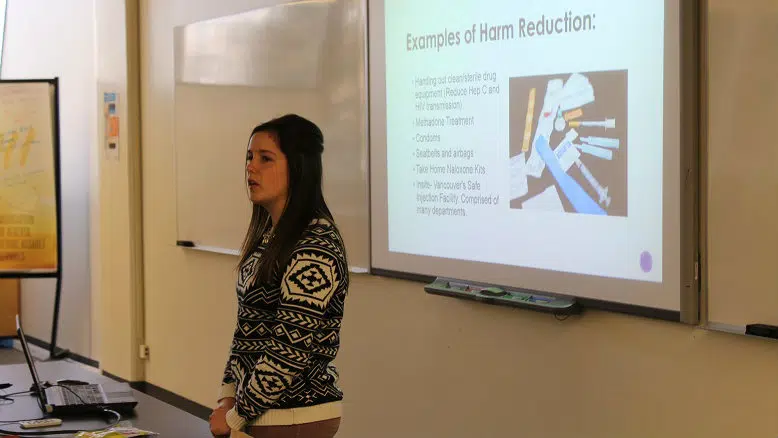
As the opioid crisis rages on, students at Lethbridge College learning about addictions services
LETHBRIDGE – With the opioid epedemic continuing to be an issue in Lethbridge and across North America, Lethbridge College has joined other local organizations in educating about addiction prevention, support and treatment.
That was the main focus of “The Opposite of Addiction is Connection Health Resource Fair” held on Wednesday.
Part of national Addictions Awareness Week, the fair brought in 10 external community agencies to join six on-campus groups to provide information to students and community members about topics such as harm reduction, prevention, treatment, supports and more.
Kara-Lyn Fredrickson, an Addictions Counselling fourth year practicum student and the event organizer says the opposite of addiction is not sobriety, it’s connection.


